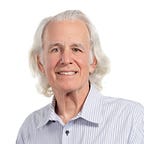Afreeism 101
The Bizarre Case of Charles Whitman
How the Murder of 13 People Gave Rise to a New (and Ancient) Way of Looking at the Universe
4 min readOct 22, 2020
In August 1966, after killing his mother and wife, Charles Whitman climbed the tower at the University of Texas and began shooting with a hunting rifle. In all, he killed 13 people and injured over 30…
